Codependency: What Are The Signs & How To Overcome It
 Codependency refers to a psychological construct involving an unhealthy relationship that people might share with those closest to them.
Codependency refers to a psychological construct involving an unhealthy relationship that people might share with those closest to them.
It was originally thought to involve families of substance abuse but has since grown to include other types of dysfunctional relationships.
Read on to learn about what codependency is and how it can affect people, how to recognize signs of codependency, and resources for learning more about and overcoming codependency.
Before you continue, we thought you might like to download our three Positive Relationships Exercises for free. These detailed, science-based exercises will help you or your clients build healthy, life-enriching relationships.
This Article Contains:
What Is a Codependent Personality Disorder?
Originally, “the term ‘codependent’ described persons living with, or in a relationship with an addicted person” (Lampis et al., 2017).
Modern understandings of codependency now refer to “a specific relationship addiction characterized by preoccupation and extreme dependence—emotional, social and sometimes physical—on another person” (Lampis et al., 2017).
The concept of codependency does still apply to families with substance abuse issues but is also used to refer to other situations too. The main consequence of codependency is that “[c]odependents, busy taking care of others, forget to take care of themselves, resulting in a disturbance of identity development” (Knudson & Terrell, 2012).
As of the time of writing, the most recent (fifth) edition of the Diagnostic and Statistical Manual of Mental Disorders (DSM-5), still only refers to dependent personality disorder (DPD), not codependency.
Codependency overlaps not only with DPD but also with borderline personality disorder (BPD), which is one reason codependency may not be classified as its own personality disorder. One study found, though, that while codependent people do share some overlap with DPD and BPD symptoms, there are also people who exhibit codependency without exhibiting symptoms of DPD or BPD (Knapek et al., 2017).
Codependency can be distinguished from DPD because codependent people depend on a specific person(s), while people with DPD depend on others in general. Codependency can be distinguished from BPD; while BPD includes instability in interpersonal relationships, it does not involve dependence on other people.
To sum up, codependency is a psychological concept that refers to people who feel extreme amounts of dependence on certain loved ones in their lives, and feel responsible for the feelings and actions of those loved ones. Codependency is not recognized as a distinct personality disorder by the DSM-5.
That said, research shows that while codependency does overlap with other personality disorders, it appears to constitute a distinct psychological construct. The best way to learn about codependency is to review some signs of codependency.
20 Signs of Codependency

Some things that have been found to correlate with codependency include (Marks et al., 2012):
- Low self-esteem
- Low levels of narcissism
- Familial dysfunction
- Depression
- Anxiety
- Stress
- Low emotional expressivity
Other signs of codependency include (Lancer, 2016; Mental Health America, n.d.):
- Having a hard time saying no
- Having poor boundaries
- Showing emotional reactivity
- Feeling compelled to take care of people
- Having a need for control, especially over others
- Having trouble communicating honestly
- Fixating on mistakes
- Feeling a need to be liked by everyone
- Feeling a need to always be in a relationship
- Denying one’s own needs, thoughts, and feelings
- Having intimacy issues
- Confusing love and pity
- Displaying fear of abandonment
How to differentiate between a healthy and a codependent relationship
In a healthy relationship, both individuals have a sense of autonomy and independence, and are able to maintain their own identities while still being connected to their partner.
While in a codependent relationship, one person may sacrifice their own needs and wants in order to please their partner, or they may become overly enmeshed and lose a sense of self.
Additionally, in a codependent relationship, there is often an imbalance of power, with one person being overly controlling or dominant.
8 Signs you may be codependent
Codependency Quiz & Tests
The simple presence of the above signs does not mean someone is codependent, but a high number of these signs may show codependent tendencies.
One way to assess someone’s level of codependency is with codependency tests, like these:
Friel Codependency Assessment Inventory from Mental Health America of Northern Kentucky and Southwest Ohio (1985)
This test comprises 60 true-or-false questions. A score below 20 is little need for concern, a score of 21 – 30 shows a moderate need for concern, a score of 31 – 45 indicates moderate-to-severe need for concern, and a score over 46 indicates a severe need for concern.
Are You in a Codependent Relationship?
This article from WebMD serves as a sort of open-ended quiz about whether one is in a codependent relationship and includes suggestions for what to do next. With input from psychologists, it offers a few signs of codependent relationships to get the reader thinking about whether or not their relationship is codependent.
Characteristics of Codependent People
A checklist by Melody Beattie comprising over 200 items has been adapted into a shorter version, called the Beattie Codependency Checklist, which has been used in peer-reviewed research on codependency (Wells et al., 1999).
There is no scale at the end that determines the taker’s level of codependency, as it is rather meant to contextualize a vast set of behaviors and thoughts into a codependency framework.
How to Overcome Codependency
Research has been conducted into group, individual, and family therapy modalities for overcoming codependency, with one systematic review showing a significant reduction in symptoms when long-term post-intervention follow-ups were conducted (Abadi et al., 2015).
The main emphasis of these various treatment modalities is on altering how the codependent person views themselves and their relationships.
This can involve interventions with various (or numerous) goals:
Building Self-Esteem
Low self-esteem is a well-established symptom of codependency (Cermak, 1986; Whitfield, 1991). Building the codependent person’s self-esteem is a main focus of many counseling interventions, with evidence supporting their efficacy (Abadi et al., 2015).
The following worksheets can help build self-esteem:
Improving Boundary Setting
Weak or unclear boundaries are another reason codependent people are often willing to compromise their personal needs and happiness to satisfy a partner.
Interventions aimed at building self-awareness, self-expression, and communication skills can help an individual’s ability to set and enforce healthy boundaries (Abadi et al., 2015).
Here are some useful worksheets for setting boundaries:
Encouraging Self Care
Boundary-setting is just one form of self-care. People with codependent tendencies can also benefit from learning to prioritize their self-care, needs, and happiness before taking care of others (Beattie, 2008).
These exercises can help you practice better self-care:
5 Books About Codependency
For people who want to learn more, here are some great books about codependency. These books are particularly helpful for people who fear they are codependent and want to overcome their codependency.
1. Codependency for Dummies (2nd ed.) – Darlene Lancer
This book, from a licensed marriage and family therapist, can be an excellent introduction to codependency for people who do not know a single thing about it.
The book is aimed at people who think they might be codependent and includes a number of actionable tips they can take to break their codependence.
Available on Amazon.
2. The Language of Letting Go: Daily Meditations for Codependents – Melody Beattie
This book, by codependency expert Melody Beattie, is a handbook for people who are codependent.
This book is full of daily meditations and focuses on self-esteem, acceptance, health, and recovery. This is a good option for anyone who knows they are codependent and wants to do something about it.
Available on Amazon.
3. Breaking Free of the Co-Dependency Trap – Janae B. Weinhold and Barry K. Weinhold
This book by a married psychologist couple is all about codependency and how to break out of it.
The authors first discuss how codependency develops in people, and how one’s childhood can ultimately lead to codependency. The authors then focus on helping the reader out of codependency.
This is a good option for anyone who wants to understand their codependency, not just how to fix it.
Available on Amazon.
4. The Everything Guide to Codependency: Learn to recognize and change codependent behavior – Jennifer Sowle
This book from a clinical psychologist aims to help people who think they are codependent.
In it, the author helps the reader recognize signs of codependency in their own behavior (and the behavior of the people around them), then helps the reader work through their own codependent or enabling behaviors, as well as the codependent or enabling behaviors of their partner.
This is a good option for learning how to recognize codependency in oneself, as well as learning how to identify and avoid codependent behaviors in the future.
Available on Amazon.
5. You’re Not Crazy – You’re Codependent: What Everyone Affected by Addiction, Abuse, Trauma or Toxic Shaming Must Know to Have Peace in Their Lives – Jeanette Elisabeth Menter
Finally, this book is written by someone who has struggled with codependency in their own life.
It aims to help people who have had traumatic experiences in their past figure out if some of their problems stem from codependency.
Then, for people who are struggling with codependency, the book offers a variety of ways to overcome it.
Available on Amazon.
Codependency Treatment: 3 Codependency Worksheets
Books can be invaluable resources, but it can take some time to get through them.
For people who want to start right away, here are some useful worksheets for learning about codependency, as well as treating and overcoming it.
1. Codependency Questionnaire
This Codependency Questionnaire is a good option for a short overview of common behaviors and feelings linked to codependency. It contains 20 items designed to get people thinking about codependency in their own lives.
While not a substitute for clinical diagnosis, it can be a good starting point.
2. Shifting Codependency Patterns
This worksheet is a helpful way to identify some emotional and behavioral patterns and tendencies that are related to codependency. It contrasts unhealthy ways that people with codependency think about themselves, with healthier ways that people think about themselves.
This worksheet is an actionable way to shift thought and action patterns to begin recovering from codependency.
3. Codependent Relationships: Beliefs, Attributes, and Outcomes
Finally, Codependent Relationships – Beliefs, Attributes, and Outcomes is a brief, informal checklist examining codependent behaviors in relationships. While not a formal test, it is a good way to evaluate codependent behaviors and thoughts in one’s interpersonal interactions, as well more generally in life.
This delves into healthy versus codependent thought patterns and behaviors.
Codependent Parents: Consequences for Children

Research has shown that codependency is not unique to the children (or spouses) of alcoholics, though, as many types of family difficulties can lead to codependency (Cullen & Carr, 1999).
In fact, having a codependent parent can lead a child to codependency as well.
This is because of the tendency that people who have been “parentified” as children are more likely to be codependent (Wells et al., 1999). The concept of parentification refers to “the reversal of the parent-child role,” or when a child is forced to serve in a parental or care-taking role towards their own parent.
This is usually because of the parent not having had their own developmental needs met while they were growing up.
Since these codependent children grow up not having their developmental needs met either, this can create a cycle of codependency passed down from generation to generation.
Being codependent can be particularly harmful for parents of addicted children (Clearview Treatment Programs, n.d.). Codependent parents of addicted children can enable their children’s addictions, even when they think they are helping.
This is one way that codependency can be especially tricky – often people with these tendencies believe they are being helpful or that their actions are necessary for the other person in the relationship.
The most effective treatment for codependency is therapy, whether group or individual, to understand the ways in which someone feels they must care-take for another’s emotional state.
This work can be hard to identify in ourselves, so having a supportive professional help us untangle these relationships can be crucial.
A Take-Home Message
For years, the concept of codependency has been criticized for being poorly defined, but over the last few decades, the construct of codependency has become more well defined and well researched, as it has been fitted with an empirical base.
Most importantly, codependency has been recognized as a relationship dynamic that affects people with all sorts of childhood trauma, not just the children or spouses of alcoholics or substance abusers.
For people who are codependent, there are plenty of ways to overcome codependency. Aside from seeking professional help, there are many worksheets and books (such as the ones highlighted above) by people who have overcome codependency. The most important thing to remember is that while everyone has loved ones and feels responsible for those loved ones, it can be unhealthy when one hinges their identity on someone else.
Ultimately, everyone is responsible for their own actions and feelings.
What is your experience with codependency? Are there relationships in your life in which you or the other person exhibit codependent tendencies? Are their relationships from cultural movies or TV shows that provide examples of these kinds of relationships?
We would love to hear your input in the comments section below.
We hope you enjoyed reading this article. Don’t forget to download our three Positive Relationships Exercises for free.
- Abadi, F. K. A., Vand, M. M., & Aghaee, H. (2015). Models and interventions of codependency treatment, systematic review. Journal UMP Social Sciences and Technology Management, 3(2), 572-583.
- Beattie, M. (2008). The new codependency: help and guidance for today’s generation. Simon and Schuster.
- Cermak, T. L. (1986). Diagnostic criteria for codependency. Journal of Psychoactive Drugs, 18(1), 15-20.
- Clearview Treatment Programs. (n.d.). How being a codependent parent can hurt your addicted child. Retrieved from https://www.clearviewtreatment.com/drug-alcohol-addiction-codependent-parent.html
- Cullen, J., & Carr, A. (1999). Codependency: An empirical study from a systemic perspective. Contemporary Family Therapy, 21(4), 505-526.
- Friel, J. C. (1985). Codependency assessment inventory: A preliminary research tool. Focus on the Family and Chemical Dependency, 8(1), 20-21.
- Friel, J. C., & Friel, L. D. (1987). Uncovering our frozen feelings: The iceberg model of codependency. Focus on the Family and Chemical Dependency, 46(1), 10-12.
- Knapek, E., Balazs, K., & Szabo, I. K. (2017). The substance abuser’s partner: Do codependent individuals have borderline and dependent personality disorder? Heroin Addiction and Related Clinical Problems, 19(5), 55-62.
- Knudson, T. M., & Terrell, H. K. (2012). Codependency, perceived interparental conflict, and substance abuse in the family of origin. American Journal of Family Therapy, 40(3), 245-257.
- Lampis, J., Cataudella, S., Busonera, A., & Skowron, E. A. (2017). The role of differentiation of self and dyadic adjustment in predicting codependency. Contemporary Family Therapy, 39(1), 62-72.
- Lancer, D. (2016). Symptoms of codependency. Retrieved from https://psychcentral.com/lib/symptoms-of-codependency/
- Marks, A. D. G., Blore, R. L., Hine, D. W., & Dear, G. E. (2012). Development and validation of a revised measure of codependency. Australian Journal of Psychology, 64(3), 119-127.
- Mental Health America. (n.d.). Co-dependency. Retrieved from http://www.mentalhealthamerica.net/co-dependency
- Wells, M., Glickauf-Hughes, C., & Jones, R. (1999). Codependency: A grass roots construct’s relationship to shame-proneness, low self-esteem, and childhood parentification. American Journal of Family Therapy, 27(1), 63-71.
- Whitfield, C. (2010). Co-dependence healing the human condition: The new paradigm for helping professionals and people in recovery. Simon and Schuster.
Let us know your thoughts
Read other articles by their category
- Body & Brain (42)
- Coaching & Application (56)
- Compassion (26)
- Counseling (50)
- Emotional Intelligence (24)
- Gratitude (17)
- Grief & Bereavement (21)
- Happiness & SWB (39)
- Meaning & Values (25)
- Meditation (20)
- Mindfulness (44)
- Motivation & Goals (43)
- Optimism & Mindset (32)
- Positive CBT (25)
- Positive Communication (20)
- Positive Education (44)
- Positive Emotions (30)
- Positive Leadership (13)
- Positive Psychology (32)
- Positive Workplace (33)
- Productivity (16)
- Relationships (42)
- Resilience & Coping (34)
- Self Awareness (20)
- Self Esteem (36)
- Software & Apps (22)
- Strengths & Virtues (30)
- Stress & Burnout Prevention (33)
- Theory & Books (44)
- Therapy Exercises (35)
- Types of Therapy (58)

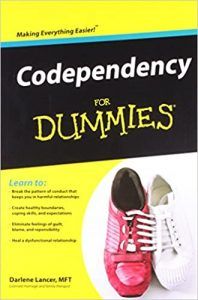
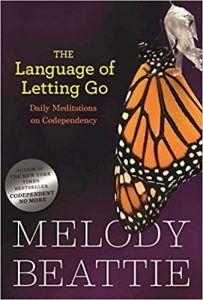
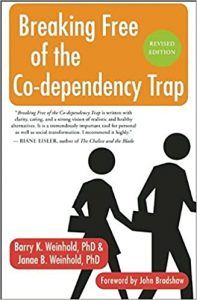
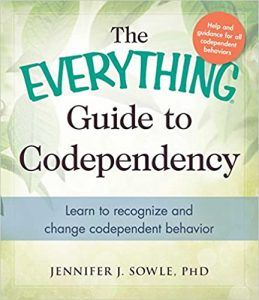
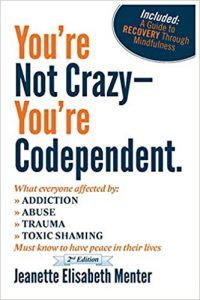




What our readers think
Beautiful, you have expressed my life’s mission as a man who tried to help his son, formed a Charity (SharingTheBurden.ca) to do so, lost that son to a fentanyl overdose and immediately pushed through the pain to make a difference in, dependents (they are all codependent anyway) and codependents’ lives, particularly those behind bars.
Thank you for such phenomenal support available via this article!!!
Scott
As far as I can remember I had to take responsibility as a girl of 18,My mom was co-dependent.I always thought I had to take care of everyone.I am now 59 have a daughter of 28.Felt I let her down so many times,because I cant seem to find my feet,to take care.Have my one sister which was with me since childhood and were both co-dependent.She is now with my ex even though she never even liked him,but grabbed onto him when she saw she might be left alone.We sold our home a d bought this place in a complex,which is on my daughters name
But my sister lives for free just because my ex says she can.Told him her traumatic story,and says his seen it all.But before he came my daughter and myself were treated badly by her and sons.She gave a false report of us,and my ex believes it.So they live with me,my daughter moved to her boyfriend,which I think was just because of the situation here.The ex hit me now and then,when confronted.He pays everything for her.While we have to work.
Hi Glenda,
I’m very sorry to read about your situation. It sounds very complex, and my initial concern is that you may be in physical danger. I’d recommend taking steps to protect your safety, and get in touch with this hotline if you need support. There are also resources on this website to help you make a plan to safely leave a violent situation.
I’d start with these things. Then, I’d recommending seeking the help of a licensed professional to talk through the issues of codependency and make some decisions about how to manage the relationships moving forward with these people in your life, including your ex. You can do a search for some therapists close to you using the directory here.
Best of luck, and I hope you find a brighter future ahead.
– Nicole | Community Manager
Thank You SO, SO much!! I’m 70 years old; I have wondered most all my life “why” I felt/reacted the way I do. Co-Dependency makes perfect sense. I’m a bit too old to “change my life”, but understanding what led me to where I am is extremely helpful…I will be forever grateful!
Good information on a type of personality. Also comprehensive guidelines are helpful.
Being codependent with someone can be confusing at times . My daughter is high functioning On the autism spectrum scale. She. Was diagnosed in her forties and it’s taken me a long time to catch up. The hardest part is making and holding on to boundaries I sometimes loose track with what this all about and learning how to help her be independent from me. I have been codependent for so long that I need help just to stay on track with all of it. Thanks for your insight.
I enjoyed the article and I’m hoping that overcoming my codependency towards my ex will help me to let go of my past, so I can successfully enjoy my present and future relationships.
Hi Eric,
So glad you enjoyed the article. And good for you for being honest with yourself about your codependency.
Best of luck taking those first steps toward that brighter future. You’ve got this!
– Nicole | Community Manager